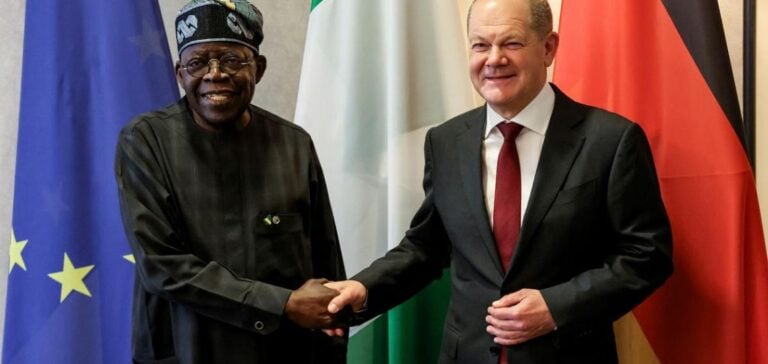German President Frank-Walter Steinmeier began a two-day official visit to Nigeria, marking a significant step in enhancing diplomatic and economic ties between the two nations. This visit, centered on discussions about the German-Nigerian energy partnership, highlighted ongoing collaborative projects and future prospects.
During a meeting in Abuja with Nigerian President Bola Ahmed Tinubu, Steinmeier emphasized Nigeria’s strategic importance to Germany: “We have with Nigeria one of the longest energy partnerships Germany has ever concluded.” This partnership, initially focused on oil and gas, is now shifting towards renewable energy, particularly solar, wind, and hydrogen projects.
An Evolving Economic Context
Since taking office in May 2023, Bola Ahmed Tinubu has implemented major economic reforms. These measures include ending fuel subsidies and liberalizing the naira (local currency) to attract more foreign investment. However, they have also led to inflation exceeding 33% in October, exacerbating economic pressures on the population.
Despite these challenges, German companies view these reforms as opportunities. Accompanied by representatives from companies such as Siemens, Enertrag, and Neuman & Esser, Frank-Walter Steinmeier stated that these transformations created a favorable environment for business and energy collaboration.
Concrete Projects in Renewable Energy
The cooperation between the two countries has recently been reinforced by tangible initiatives. In November 2023, Union Bank of Nigeria and DWS Group, a German financial entity, signed a memorandum of understanding for a $500 million investment in renewable energy. Additionally, Riverside LNG, a Nigerian company, agreed to supply 850,000 tons of natural gas to Johannes Schuetze Energy Import AG, a German firm.
These projects reflect the shared commitment of both nations to the global energy transition, with a focus on diversifying energy sources and reducing carbon emissions.
Political and Cultural Meetings
The German president’s visit was not limited to economic discussions. He planned to meet Omar Alieu Touray, president of the Economic Community of West African States (ECOWAS) Commission, to discuss regional cooperation and common challenges in West Africa.
In Lagos, Nigeria’s economic capital, Frank-Walter Steinmeier will meet local business leaders and prominent cultural figures such as Nobel laureate Wole Soyinka and Nike Okundaye, founder of one of West Africa’s largest art galleries.
By engaging in energy, economic, and cultural exchanges, this visit highlights the strategic importance Germany places on its relationship with Nigeria, both bilaterally and regionally.






















